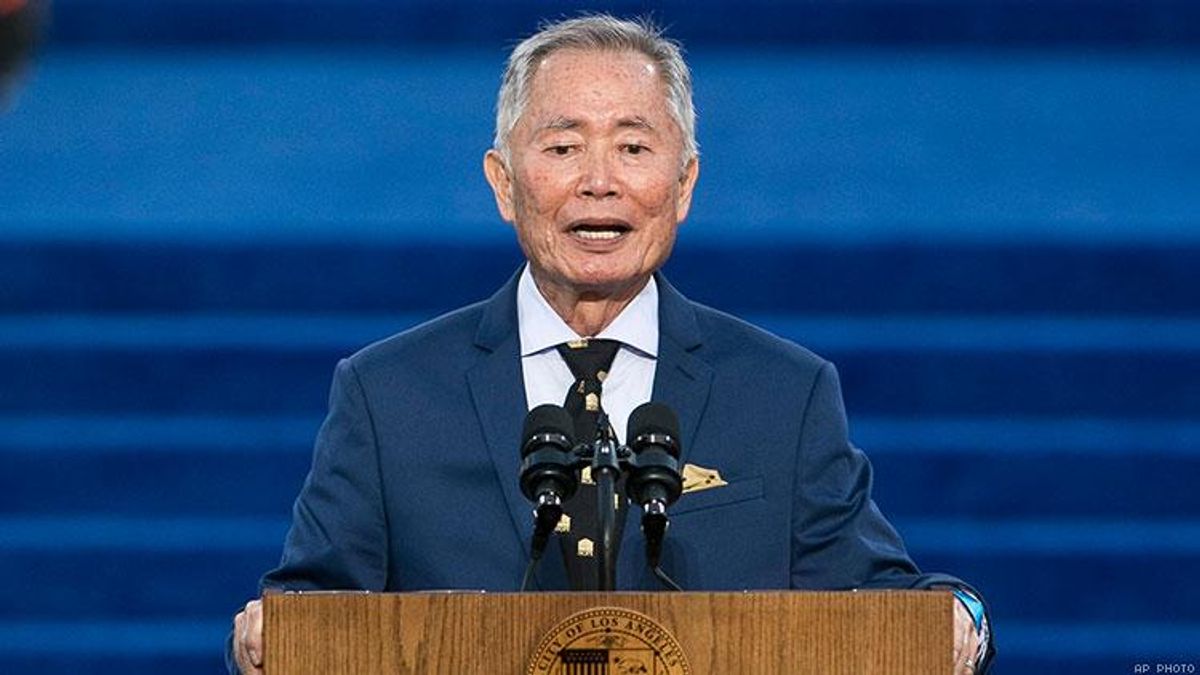George Takei has written a scathing condemnation of the Trump administration's policy to break up families at the U.S. border.
As a child, Takei was sent to a Japanese-American internment camp during World War II. But even these camps, which are considered a black mark on American history, were better than Trump's policy "in one core, horrifying way," Takei wrote in an op-ed for Foreign Policy.
"At least during the internment of Japanese-Americans, I and other children were not stripped from our parents," Takei said. "We were not pulled screaming from our mothers' arms. We were not left to change the diapers of younger children by ourselves."
"I cannot for a moment imagine what my childhood would have been like had I been thrown into a camp without my parents," Takei added. "That this is happening today fills me with both rage and grief: rage toward a failed political leadership who appear to have lost even their most basic humanity, and a profound grief for the families affected."
Takei, a gay actor known for originating the role of Sulu on Star Trek, said he felt compelled to speak out against this injustice as a survivor of internment camps. He also debunked the lies promoted by the Trump administration: that the policy it imposed is the result of a law passed by Democrats, and that asylum-seekers are criminals.
In fact, Takei drew parallels between how Japanese-Americans were painted as the "enemy" during World War II and how asylum-seekers at the U.S. border are pained as "criminal." He sees this as the latest culmination of racist propaganda perpetuated by President Trump.
"Trump prepared his followers for this day long ago, when he began to dehumanize Mexican migrants as drug dealers, rapists, murderers, and animals. Animals might belong in cages. Humans don't," Takei wrote.
The 81-year-old activist concluded his op-ed with a plea for lawmakers and the public to act.
"The internment happened because of fear and hatred, but also because of a failure of political leadership," he wrote. "In 1941, there were few politicians who dared stand up to the internment order. I am hopeful that today there will, should be, must be, far more people who speak up, both among our leaders and the public, and that the future writes the history of our resistance -- not, yet again, of our compliance."


















































































